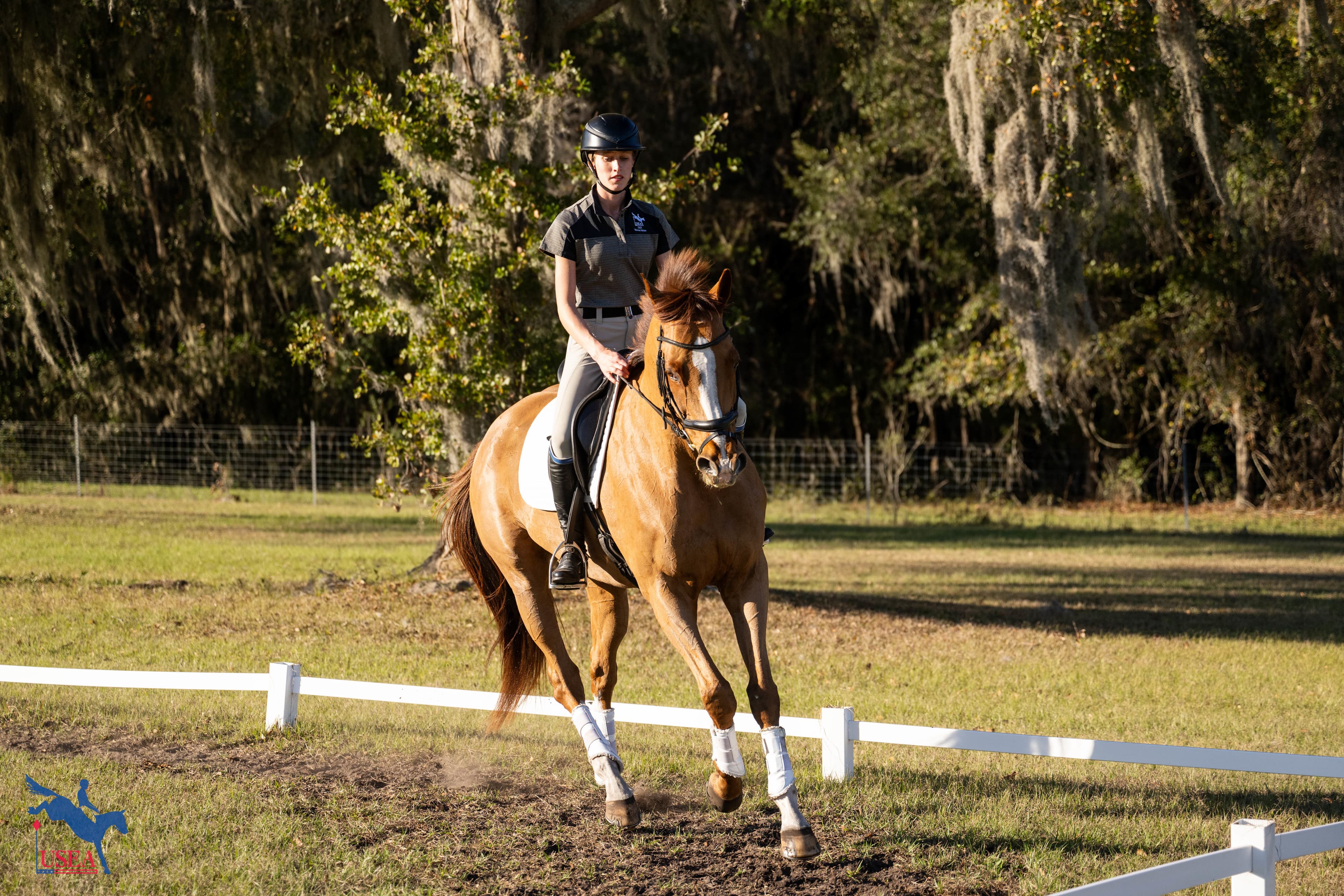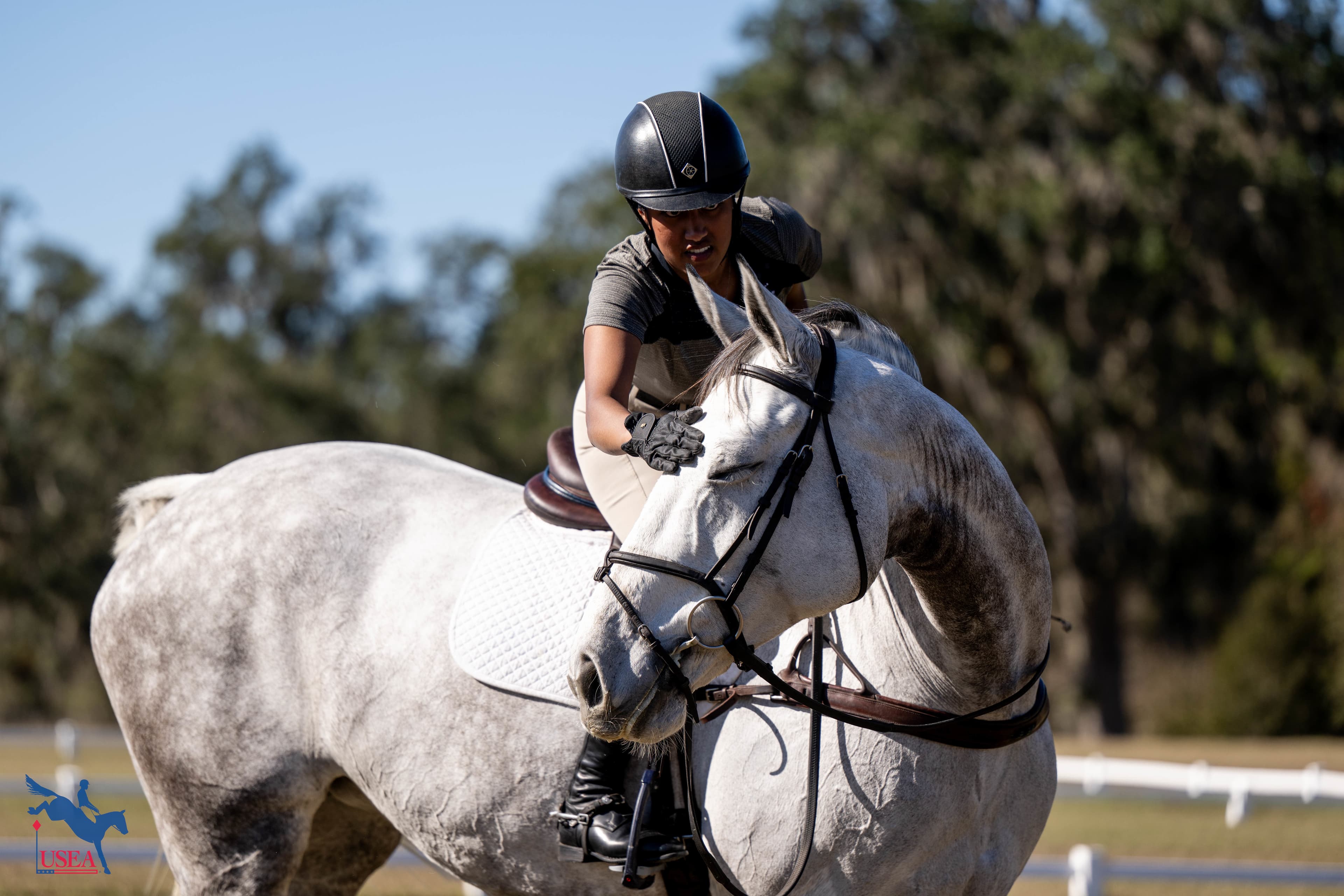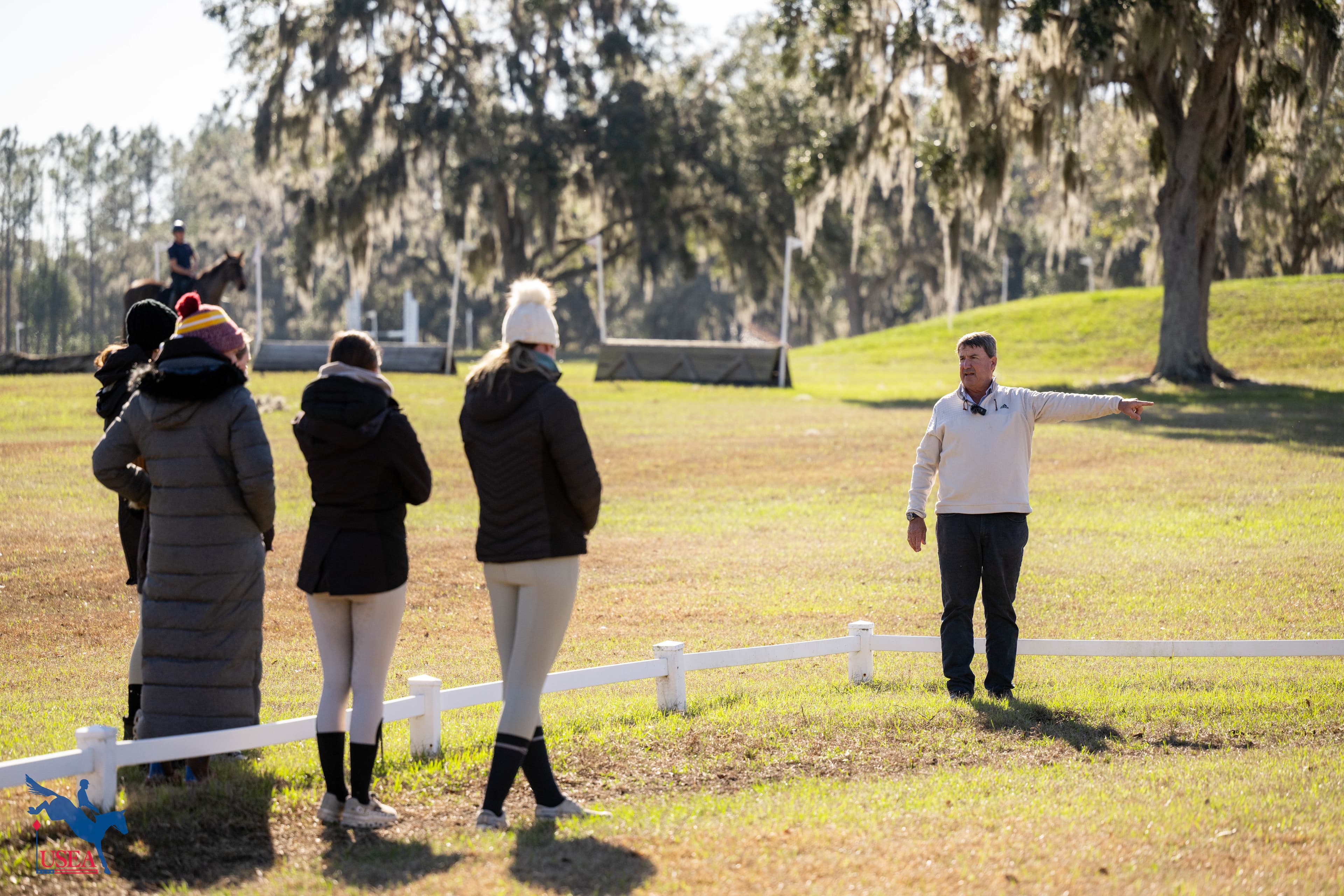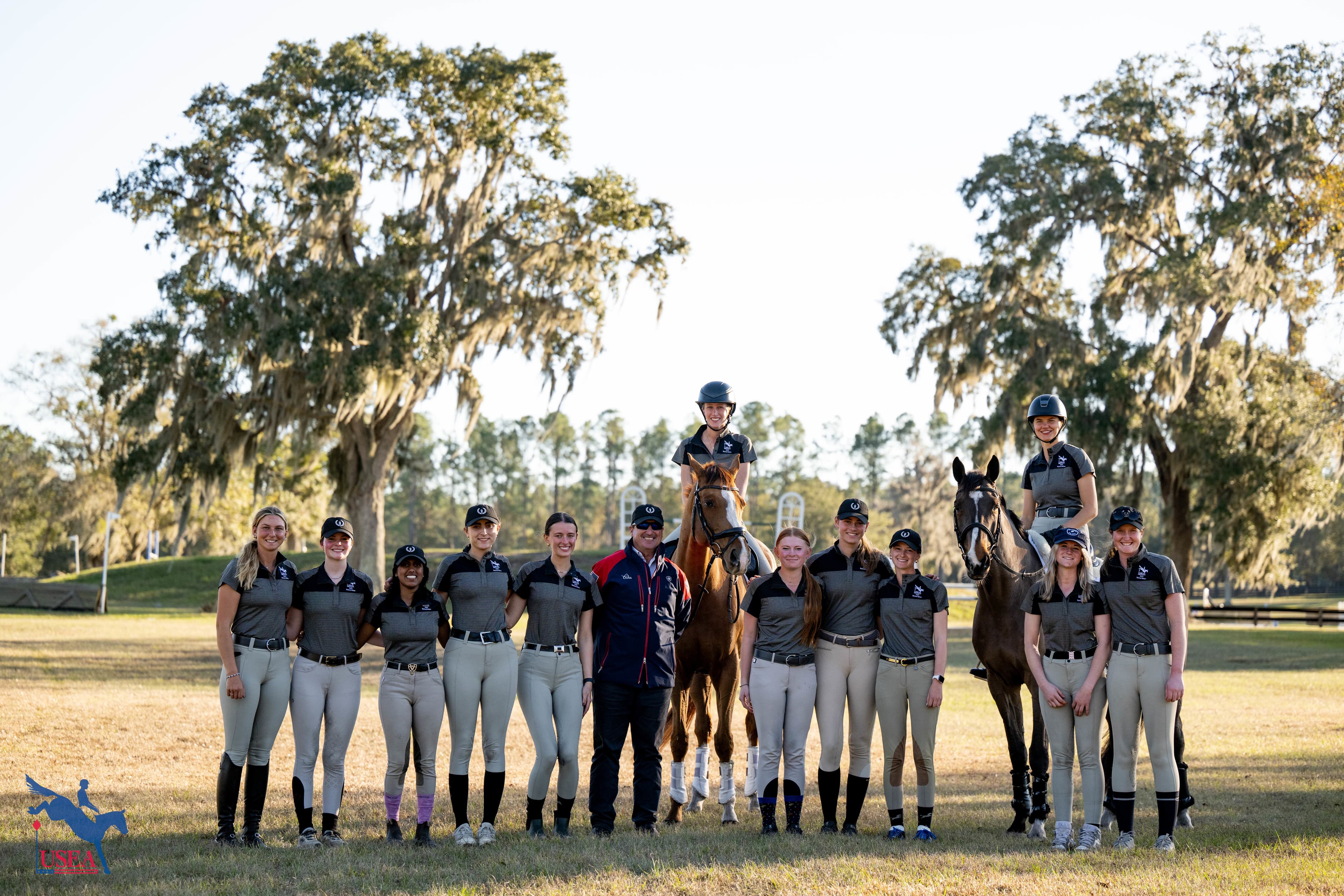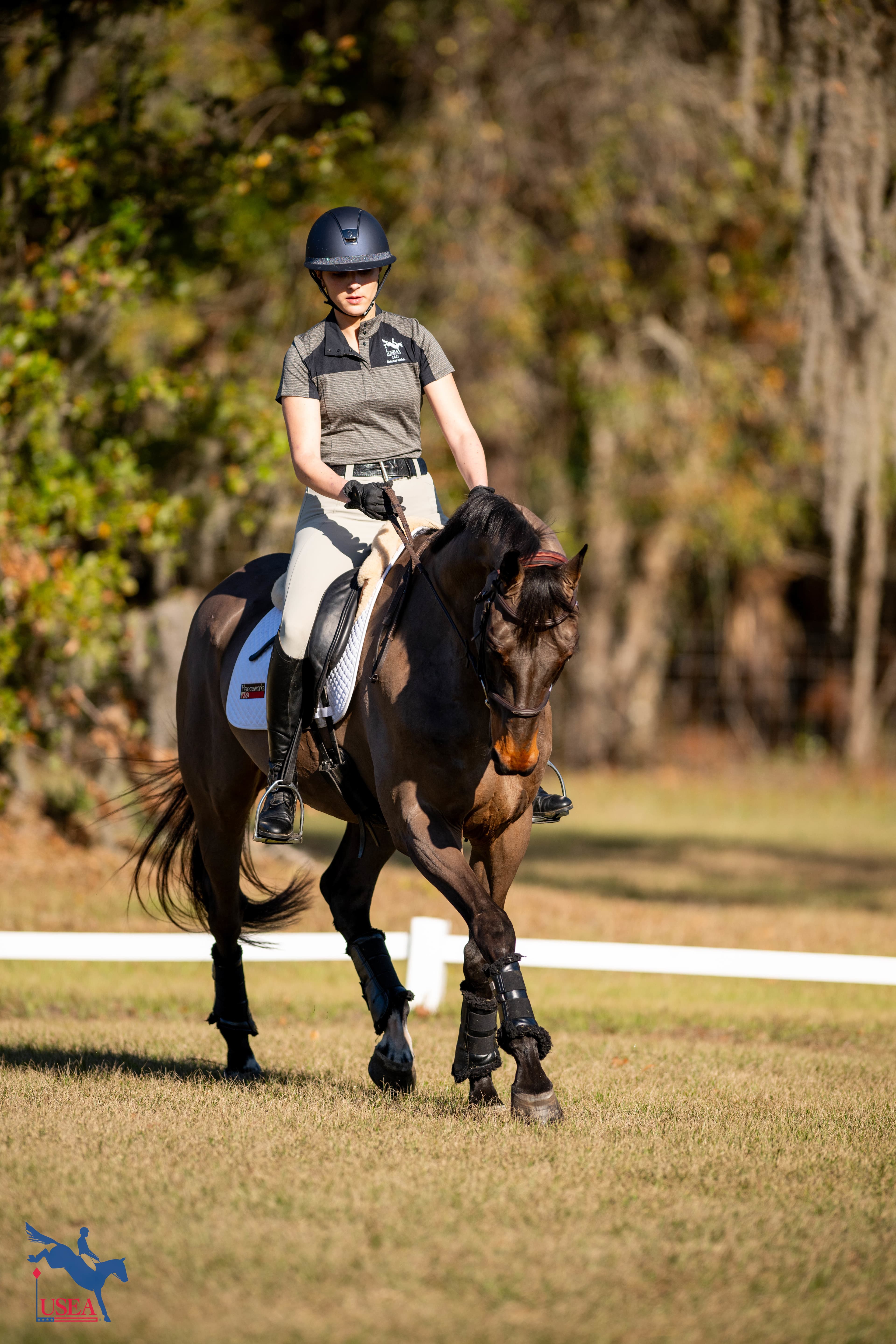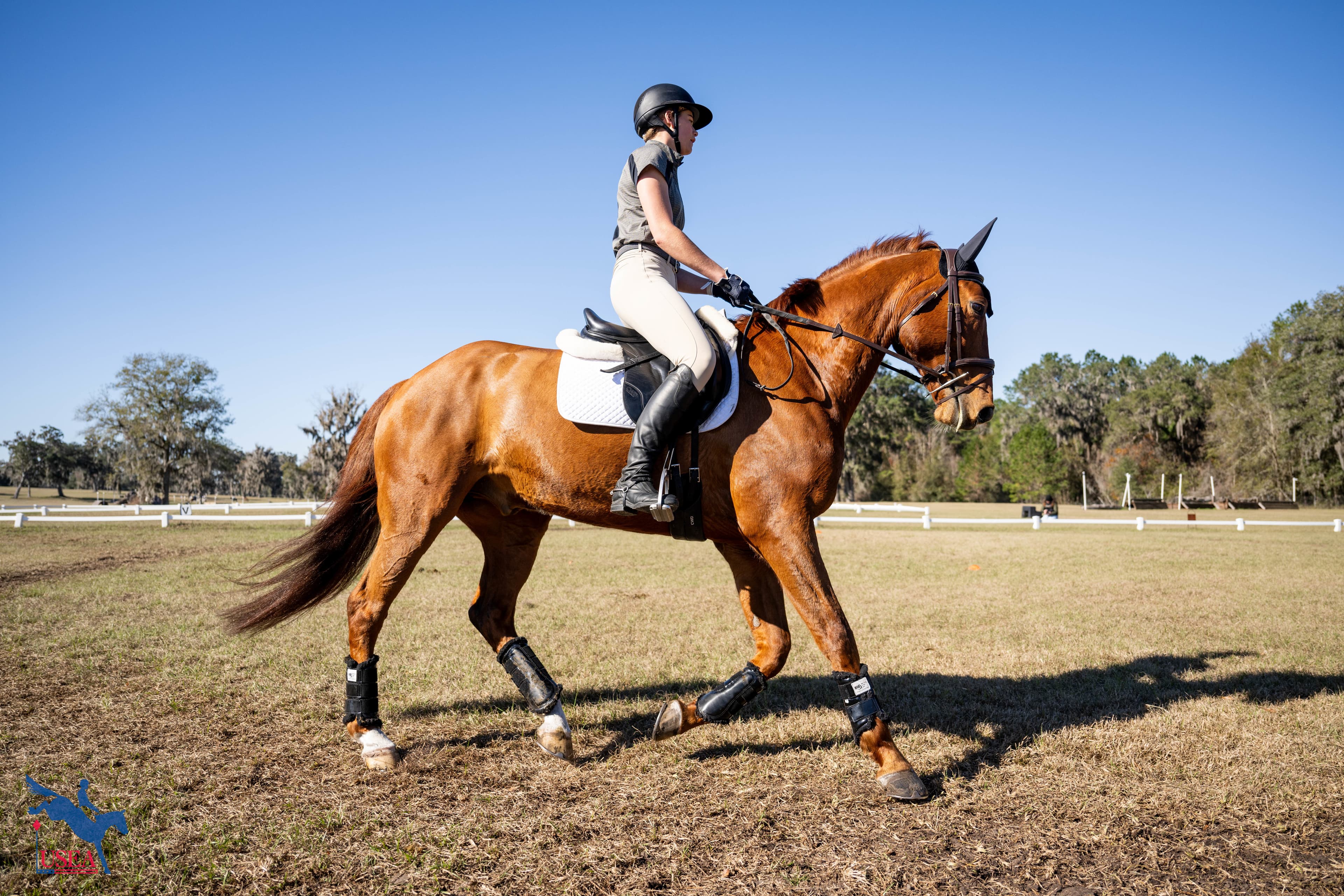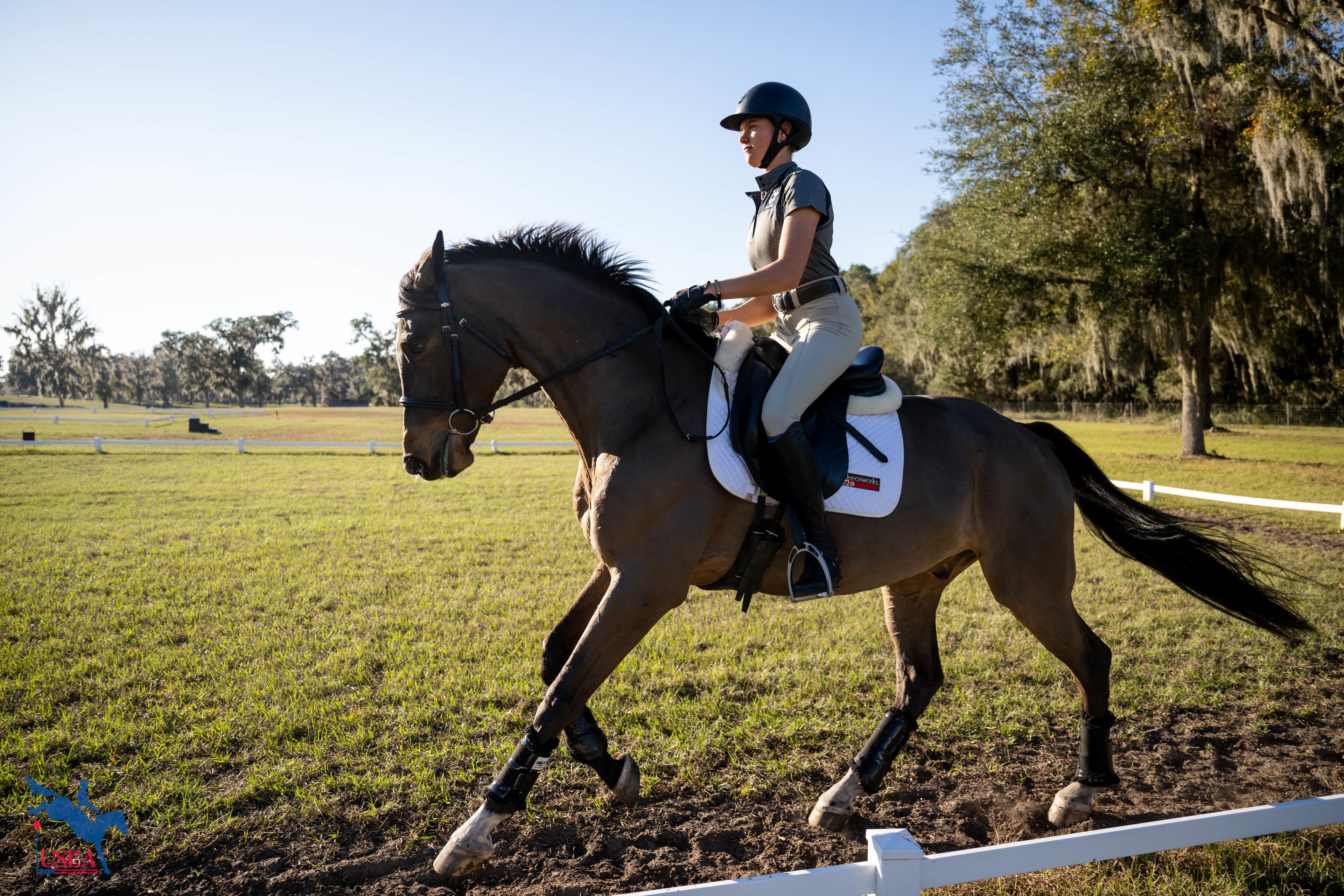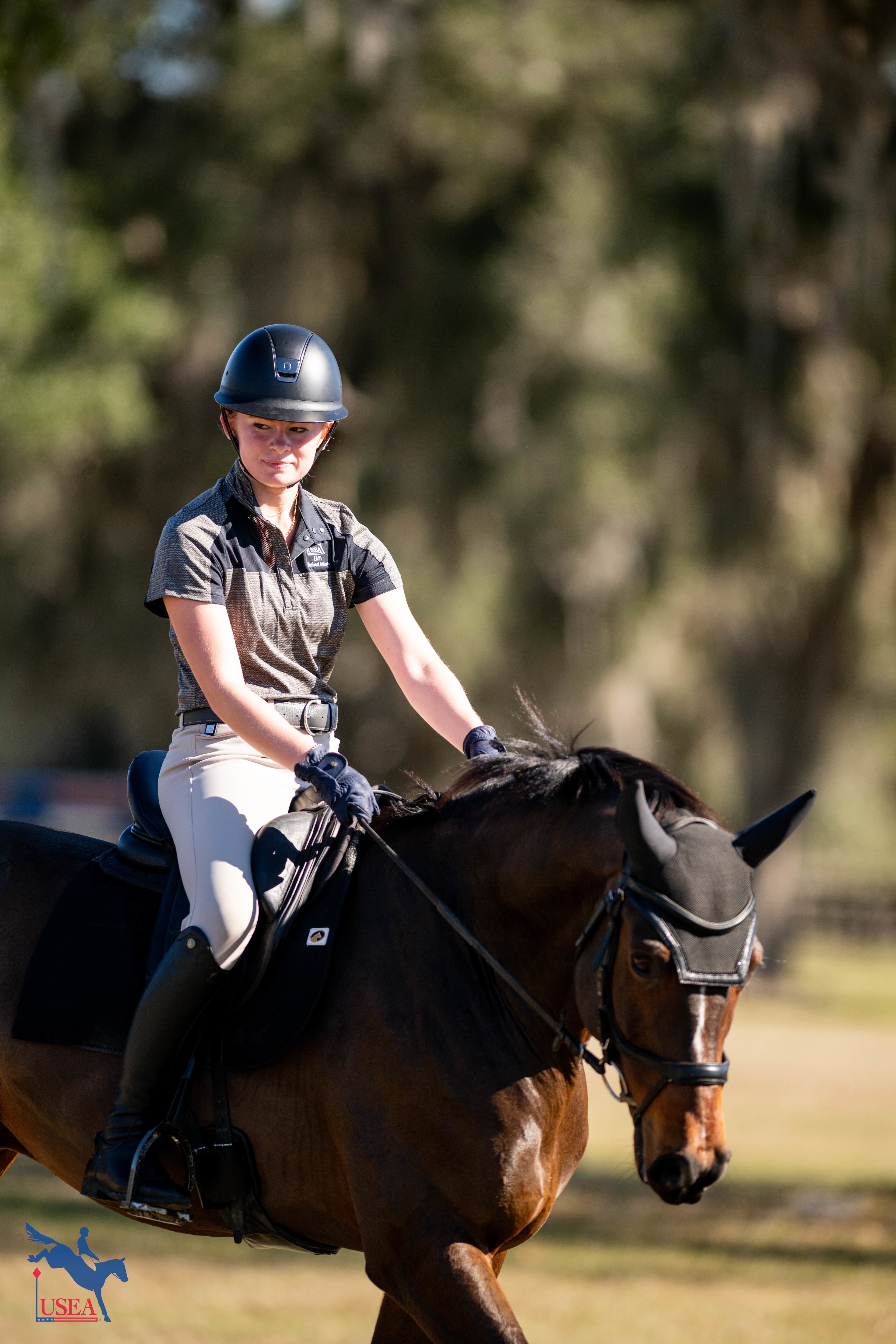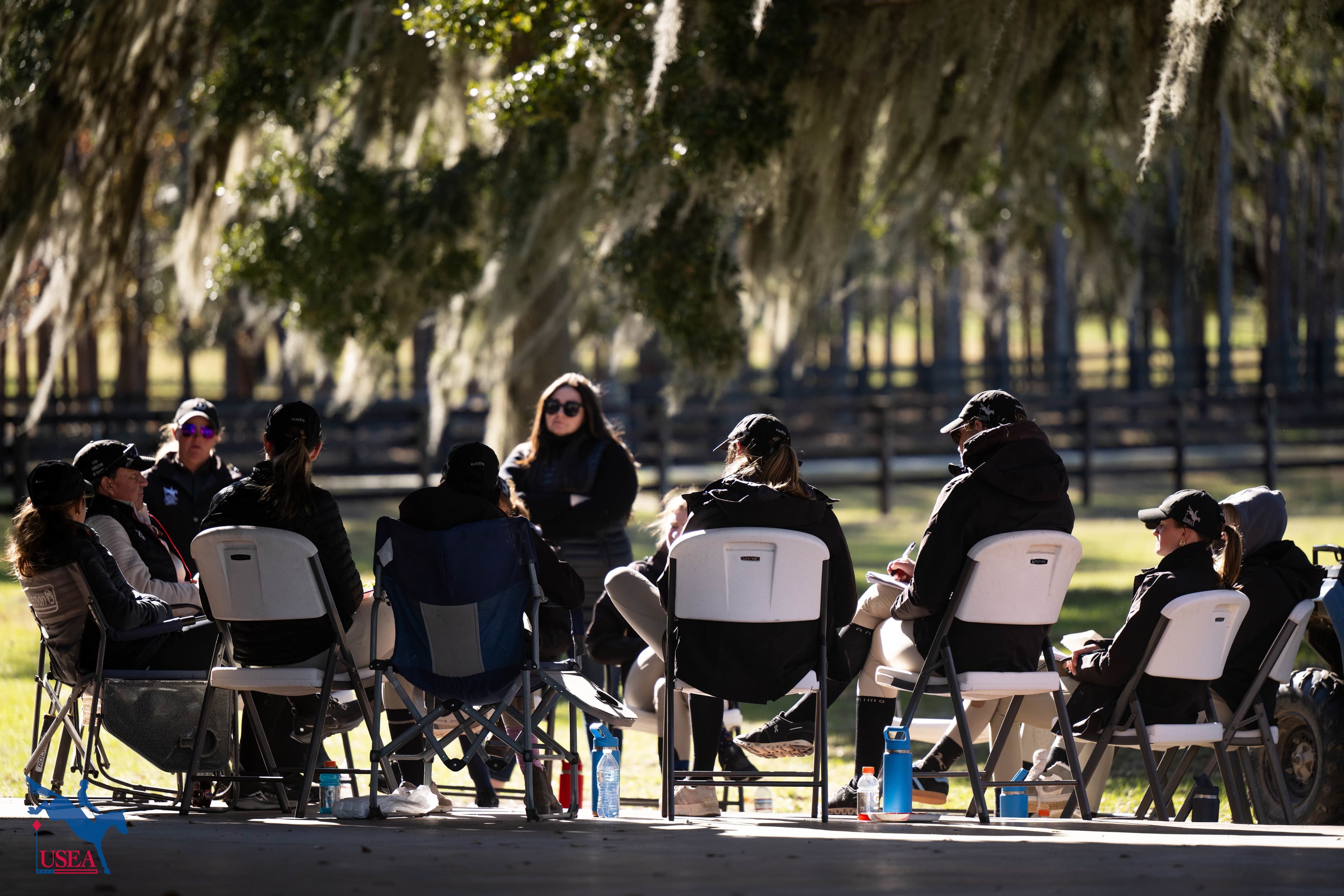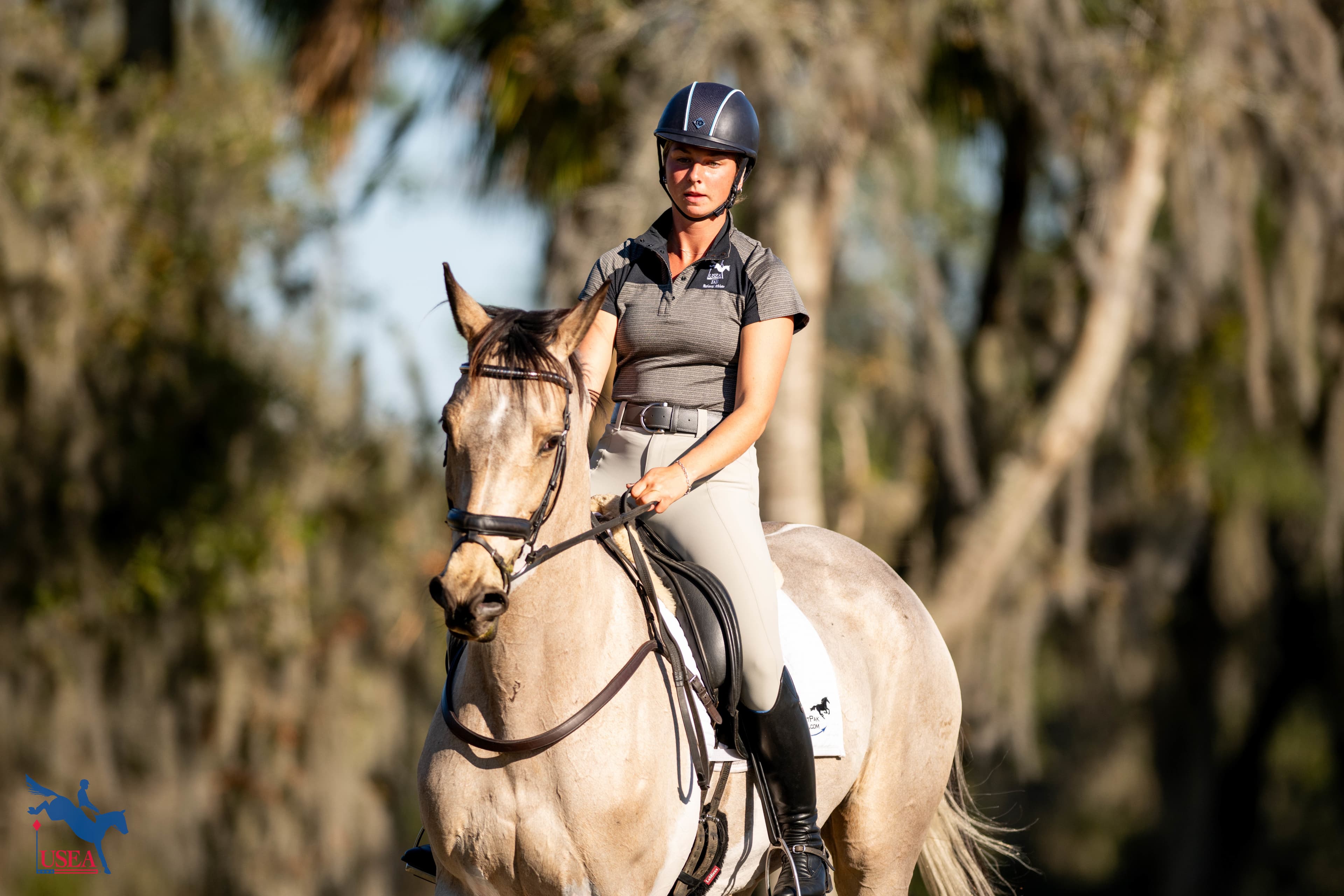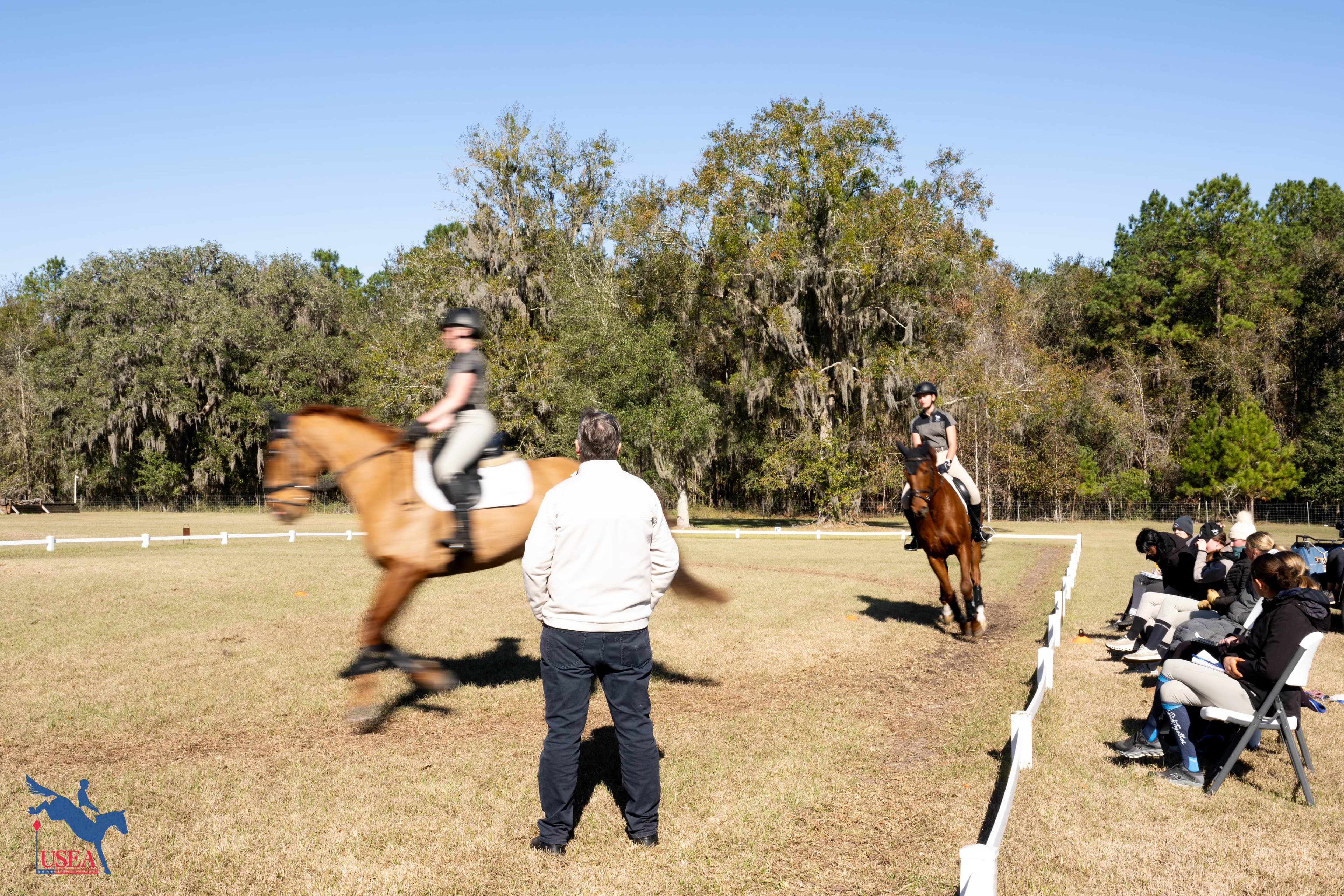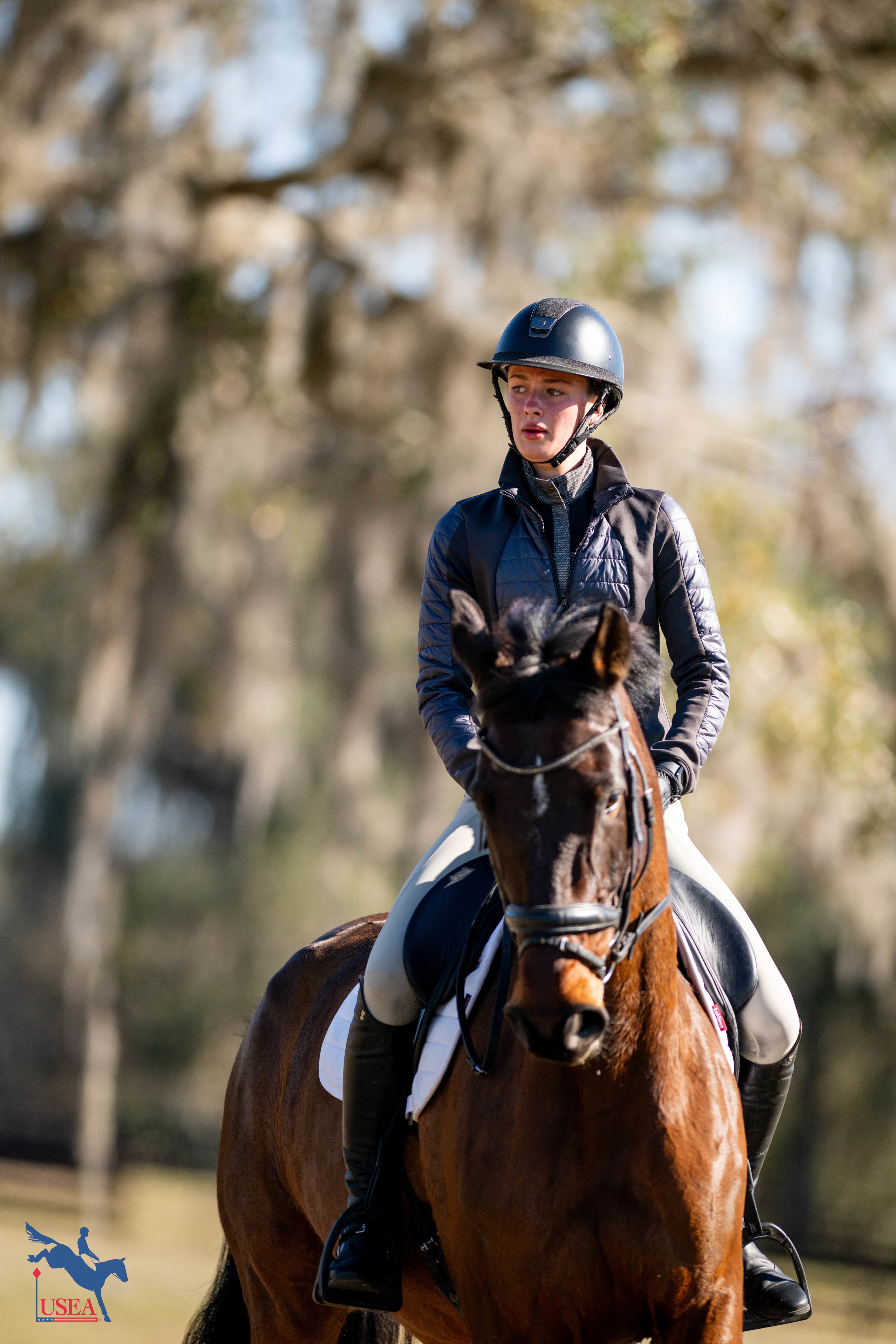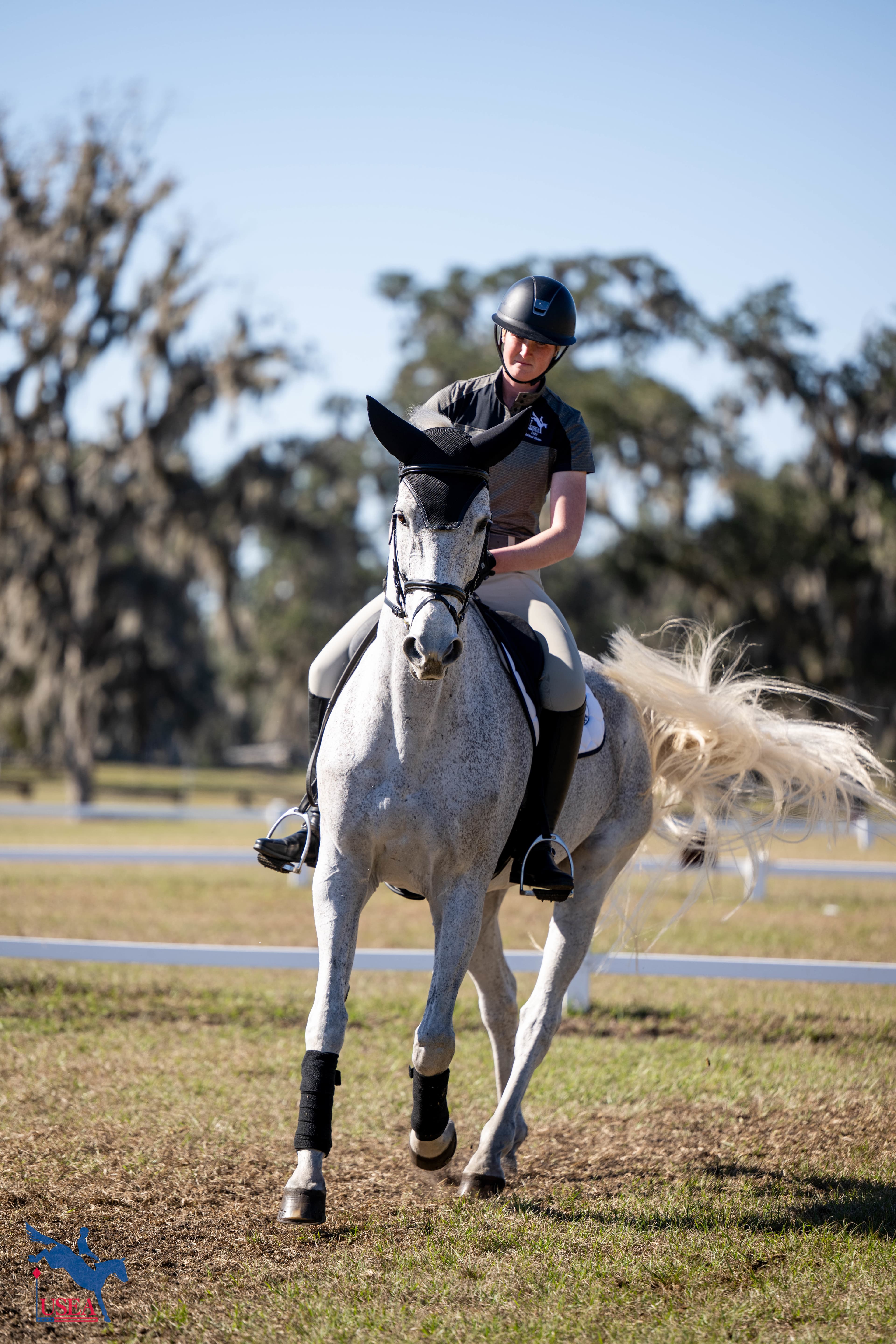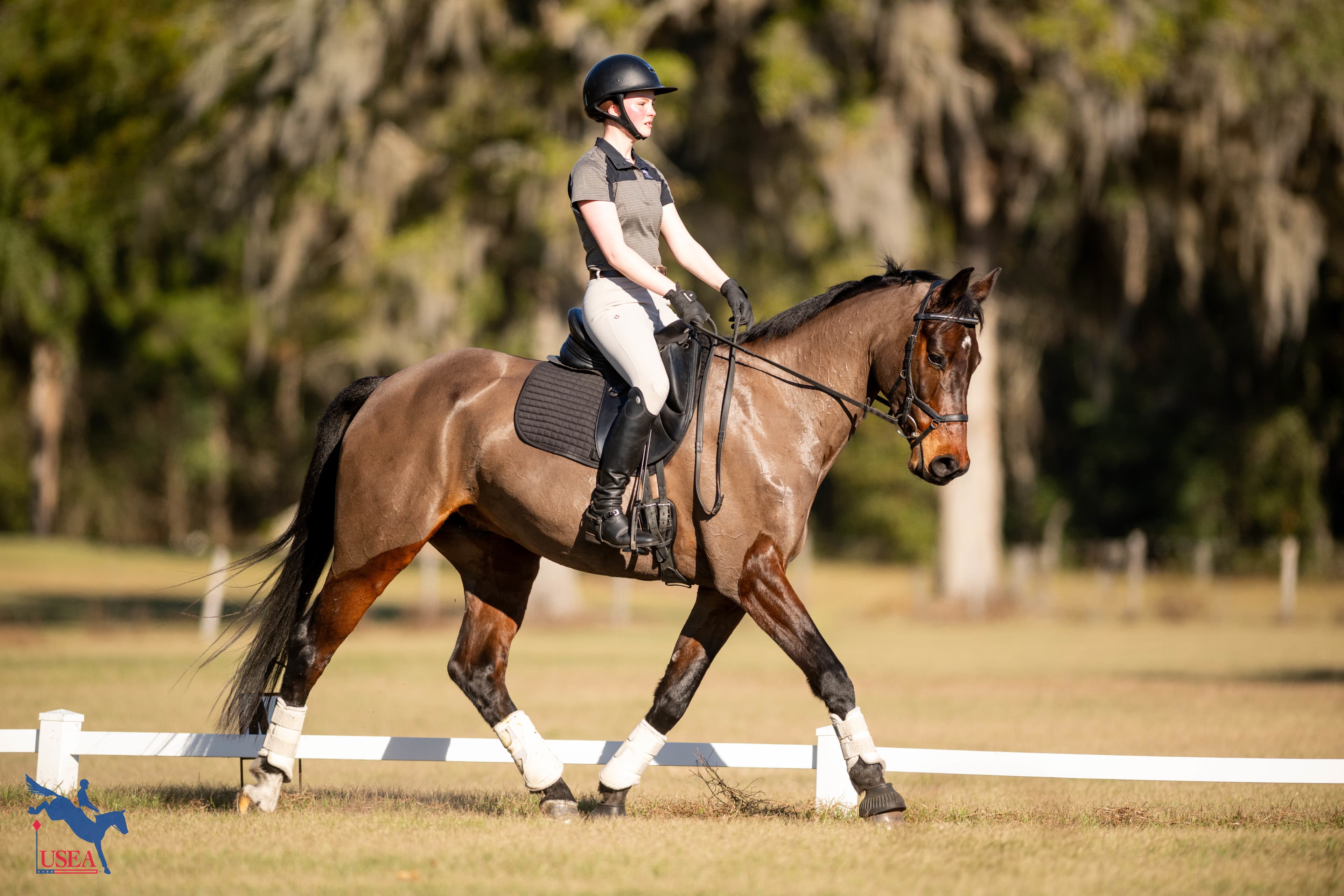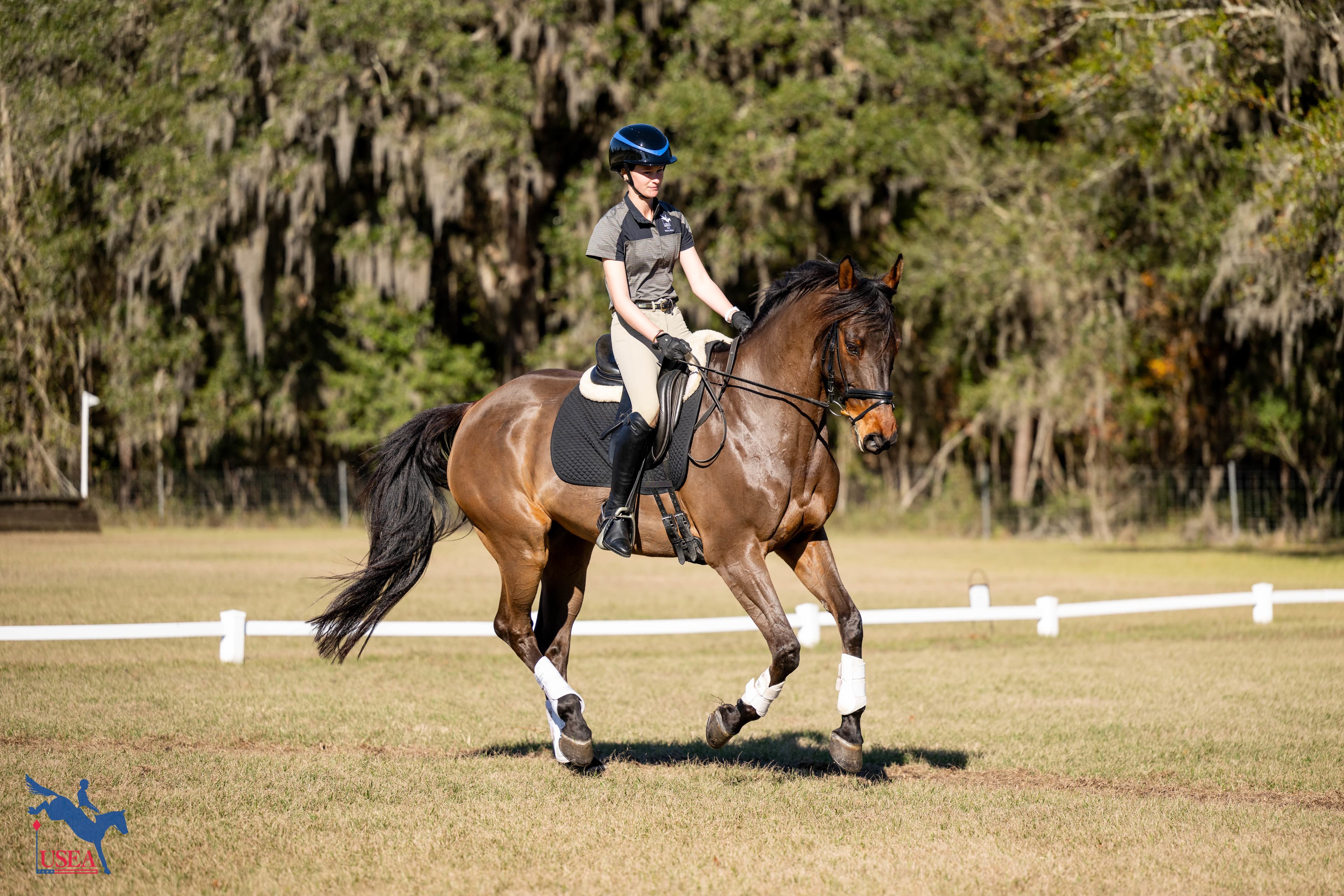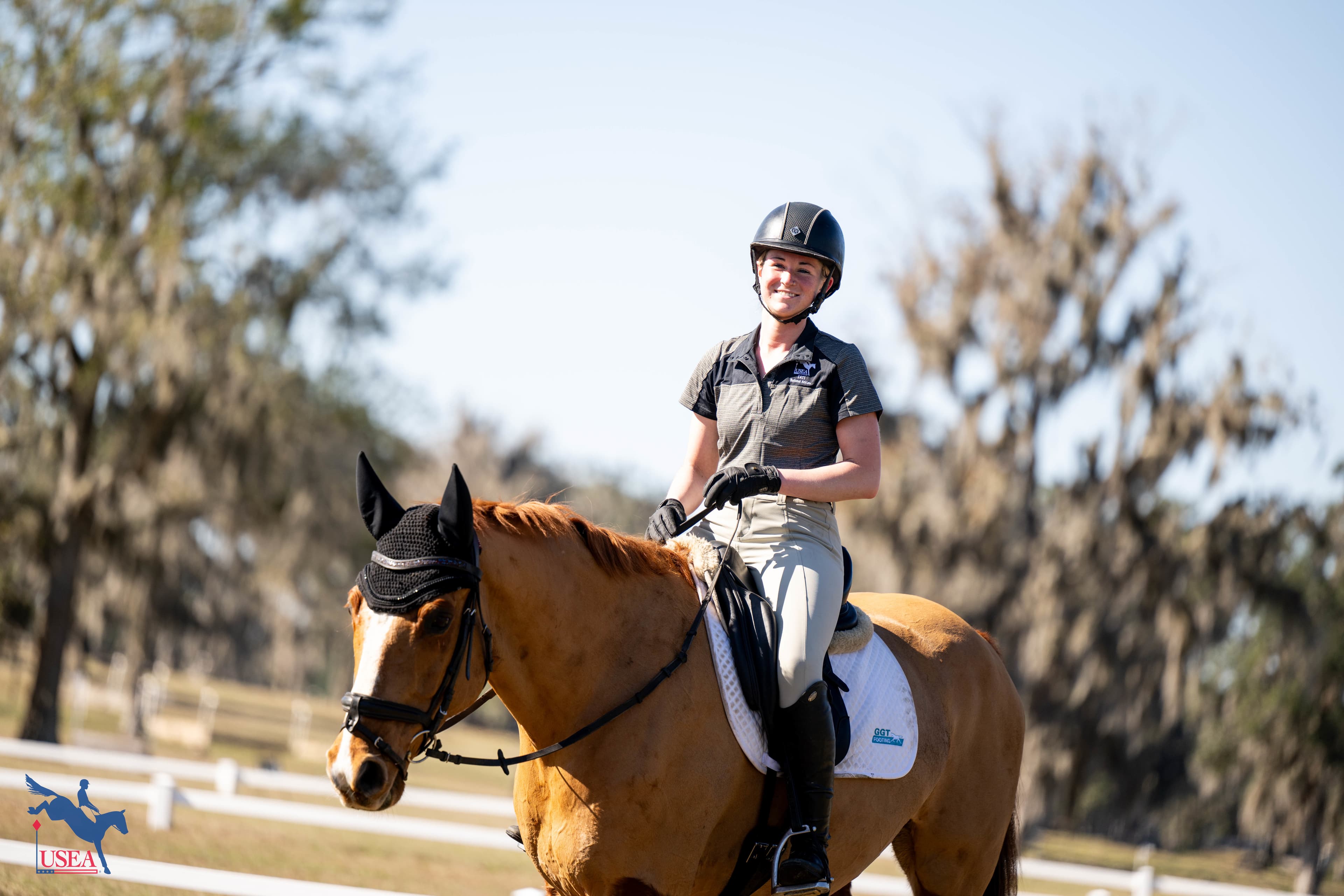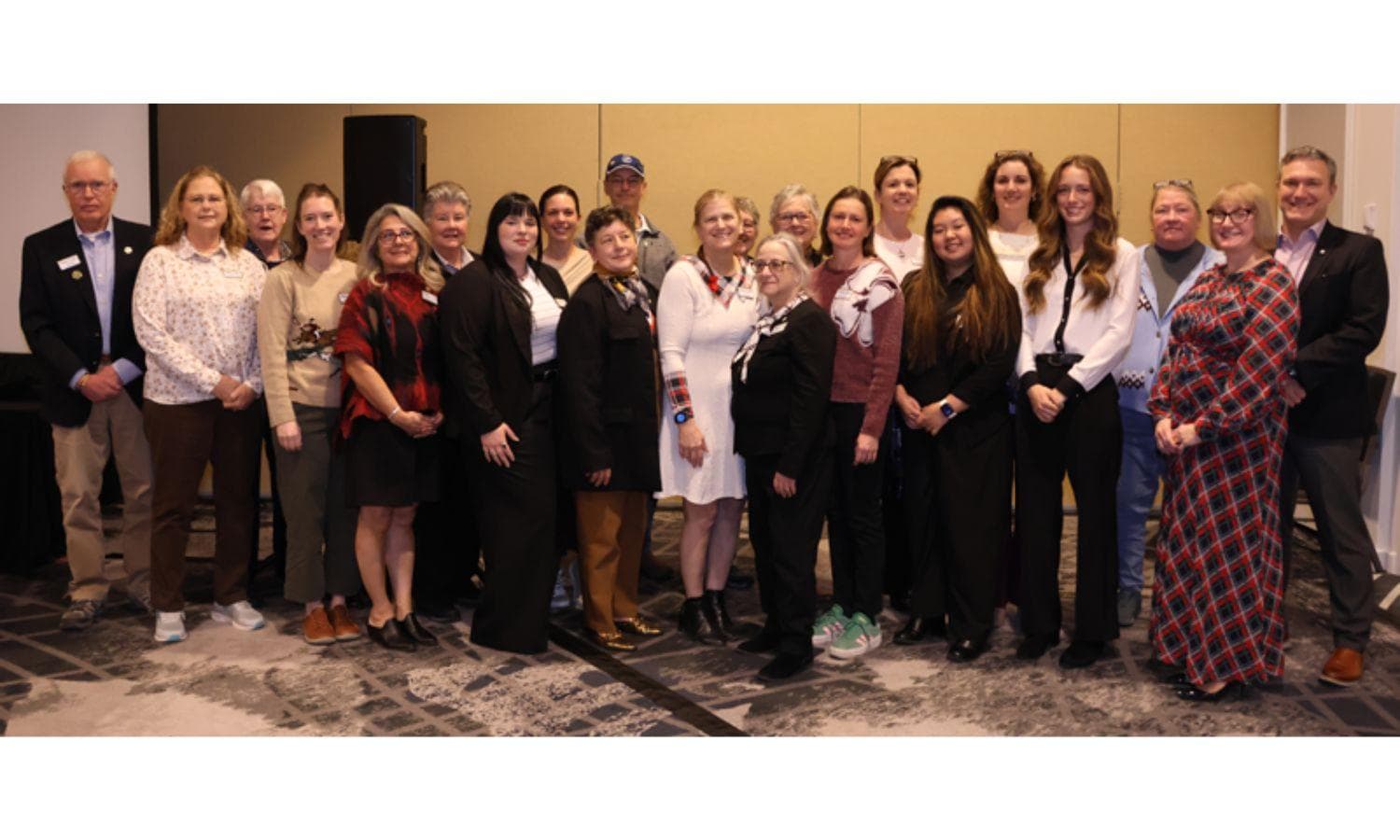Details, Details, Details on Day 4 of the 2024-2025 EA21 National Camp
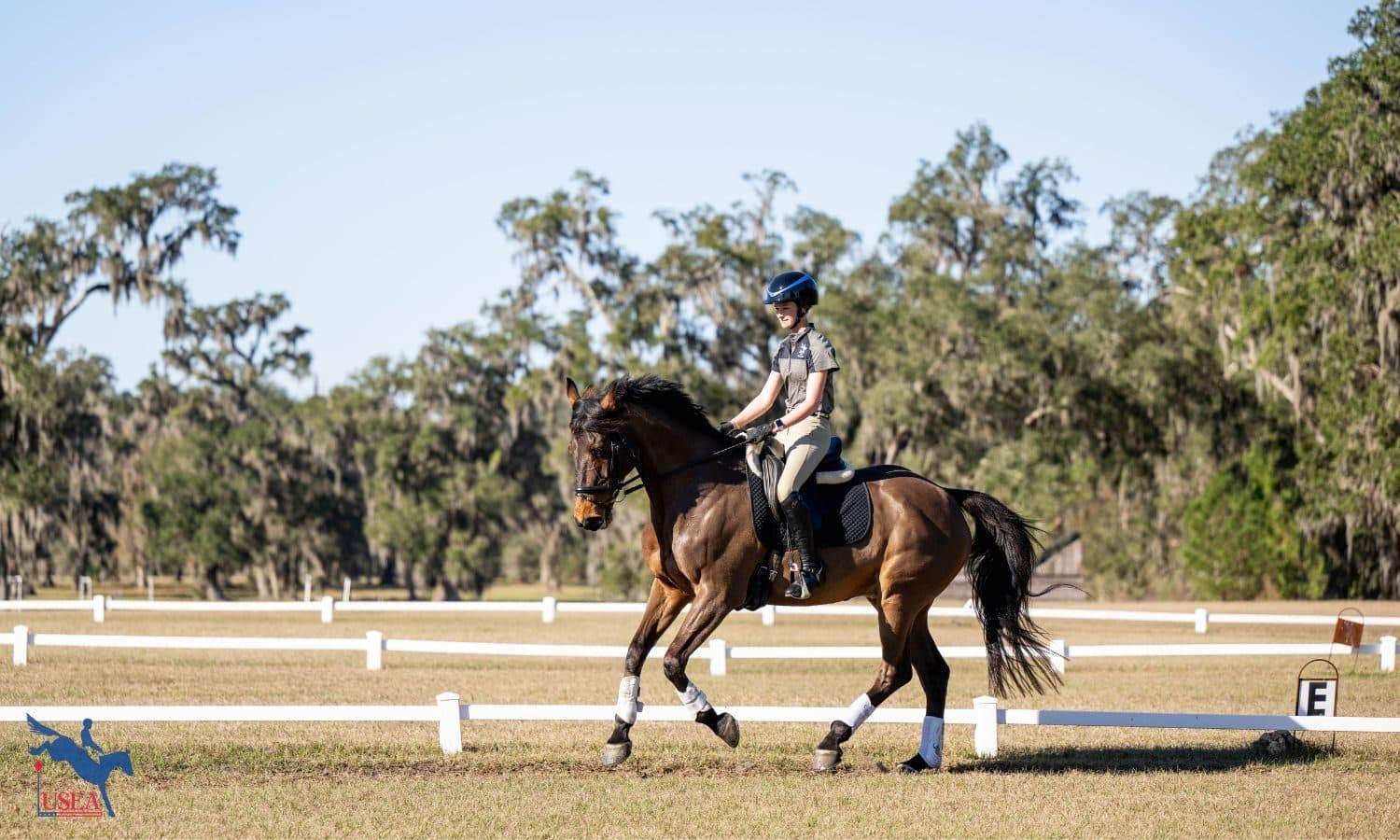
Ocala, Fla.—Jan. 3—“There are 385 million people in the U.S., and only 3.8 million have horses,” David O’Connor said as he began the classroom session on day 4 of the Emerging Athletes Under 21 (EA21) National Camp. “Not all of them are into eventing.”
The session prompted discussions about the social license of the sport and the manner in which athletes should comport themselves in the public eye.
“What the horses bring to you should be just as good as what you bring to them,” he added. “Share those stories and respect the field of play.”
He also encouraged riders to get involved in their local sporting committees and help shape the future of the sport by doing the work of engaging with officials, other competitors, and federations.
There are different levels of engagement in any sport, but they all follow the same levels of knowledge, he explained on Wednesday: “First thing in sport learning should be pleasure, then technique, then theory, instinct, intuition, and finally coaching.” Today he reemphasized the pleasure aspect and entreated riders to never forget that they and their horses are “playing a game together.”
This element of game play became the theme of the riding portion of the day.
The goal of this second flat day was to practice footwork on the flat an learn how to recognize weaknesses or behavioral responses and how to address them. By gamifying it for the horses, much like the previous day’s horsemanship demonstration, the horses were always given a decision to make rather then placed in a certain way. Keeping their feet moving encouraged their mental engagement with the rider.
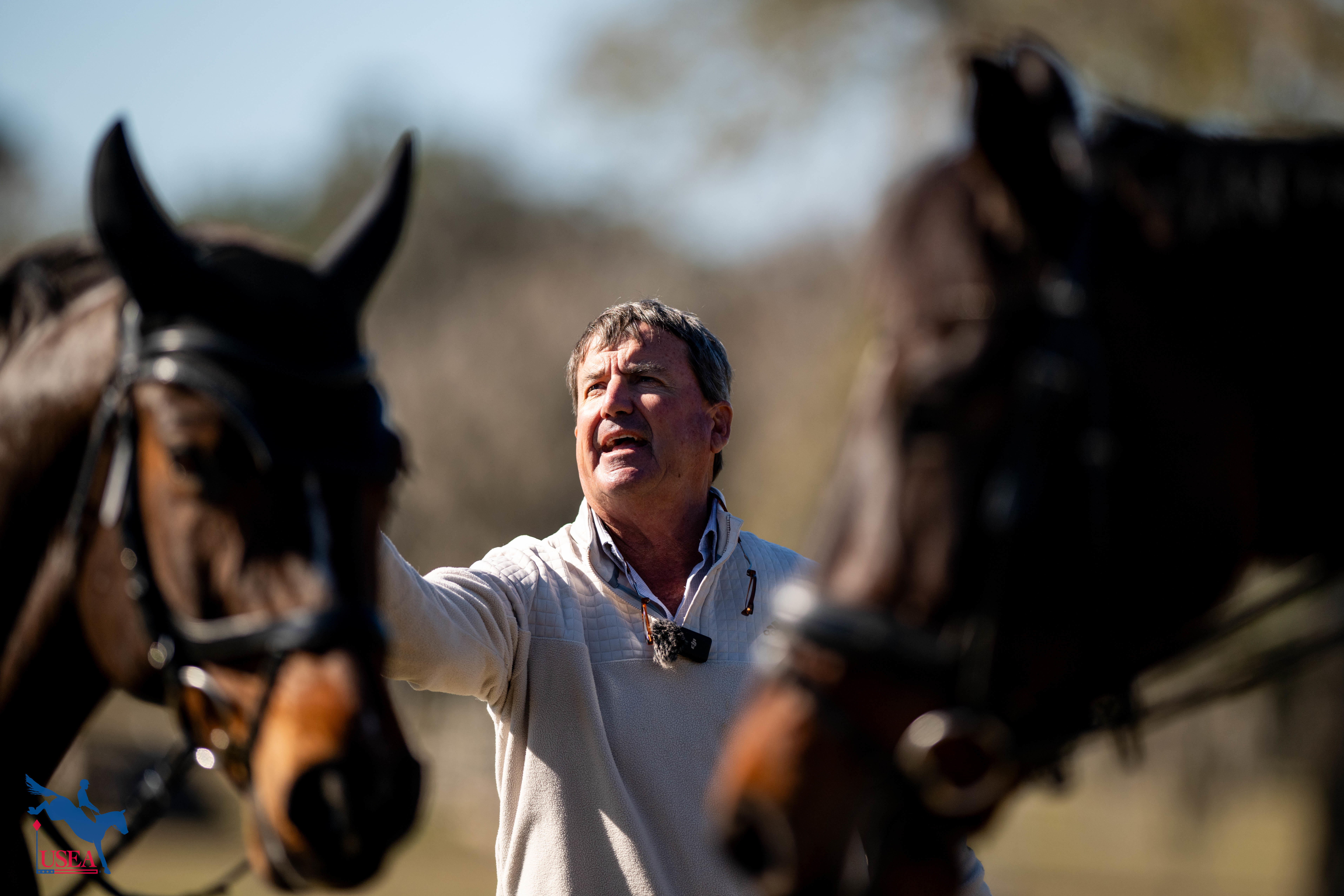
With the various tools and training scale practiced in the three phases, it was time to utilize them in a more specialized setting. With smaller groups, O’Connor, the EA21 Director of Coaching, spent individual time with each rider working on their specific needs and where they should devote some attention. Some needed to build more flexibility in their hips for better seat communication and some needed softer elbows to avoid restricting their rides. Some practiced preparing earlier for their dressage movements while others had to keep their horses moving to help them find the correct answer.
That attention really landed home with Willow Schwartz. “I definitely felt like I could really understand Finn [my horse] and work with him a lot better,” she said. “David explained to me about riding with my outside leg and keeping him forward with my seat, rather than using my hands and my upper body to bring him back. It definitely helped! I feel like by the end, he was a completely different horse.”
For Eliza Quigley, the whole week has seen her knowledge grow and her riding flourish. “I've noticed throughout each lesson some improvements were made. I really like the lectures in the morning, because then we get to go practice what we just talked about and have a deeper understanding. [We] figure out how to do stuff and why we're doing it.”
Details like whether a rider needs to pitch their hips more left or more right, clarify their communication with their horse, or discover exactly where they need to prepare for a corner in a dressage test are the fundamental basics the EA21 program prioritizes. Details such as how to train for the next level up and how to recognize when to push and when to wait require some guidance and some experimentation.
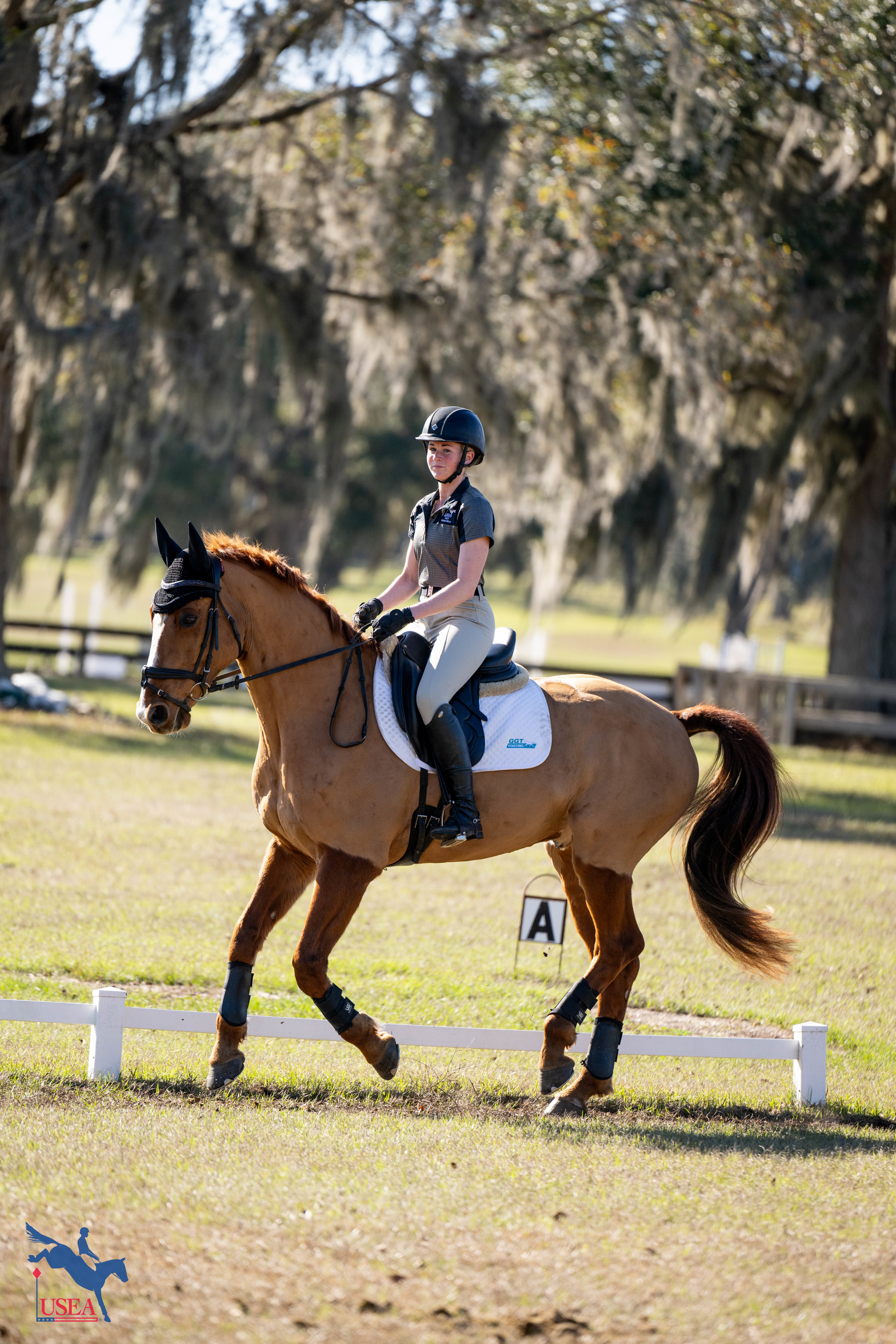
“I thought everybody made some pretty dramatic improvements,” O’Connor remarked. “They were quite good from the beginning, but the weaknesses that we identified, they really took on and experimented. They tried to find new things. They put their heart and soul into it. So, I thought it was a very rewarding week in all three phases. I'm really excited about the future with these guys, of what top level eventing can be if these guys are going to be the drivers of it.”
There is one more day left to the National Camp, but O’Connor will not be in attendance. As advisor to the Caisson Detachment of the 3rd United States Infantry Regiment on horsemanship, he will be traveling to Arlington, Virginia, for the state funeral of former President Jimmy Carter.
Throughout the week, he often mentioned discovering a new phrase to convey the ideas he was attempting to illustrate to students. The learning O’Connor says, never stops. “From a teacher's point of view, you're always trying to improve your language, right? The very classical things like in the training scale with engagement, impulsion, etc., those have definite terms of reference that are very specific and been proven over the years. But the phrases to explain other concepts, you're always experimenting, try[ing to find] something where the words you use resonate.”
The final day of National Camp will be taught by the other EA21 coaches, and riders have been challenged to design and set a show jumping course.
Helpful Links:
Don't forget to follow the USEA event coverage on social media!
Facebook | Instagram | Threads | TikTok
About the USEA Emerging Athlete U21 Program (EA21)
The purpose of the USEA Emerging Athletes U21 Program (EA21) is to identify and provide consistent quality instruction to the next generation of elite event riders. The aim is to create a pipeline for potential team riders by identifying and developing young talent, improving horsemanship and riding skills, and training and improving skills and consistency.
The USEA Emerging Athletes U21 Program was launched in 2022 with a model of five summertime regional clinics taught by selected USEA Eventing Coaches Program (ECP) coaches, leading to a winter national camp consisting of selected Young Riders from the regional clinics. Athletes who are 21 years or younger, are current members of their USEA Young Rider Area program, and are established at the Training Level or higher, are eligible to apply for the EA21 program. Click here to learn more about the USEA EA21 Program.
The USEA would like to thank ARMA, Bates Saddles, Kerrits, PulseVet, Ride iQ, Schneiders Saddlery, Sidelines Magazine, YETI and WeRideTogether for sponsoring the USEA Emerging Athletes U21 Program.
